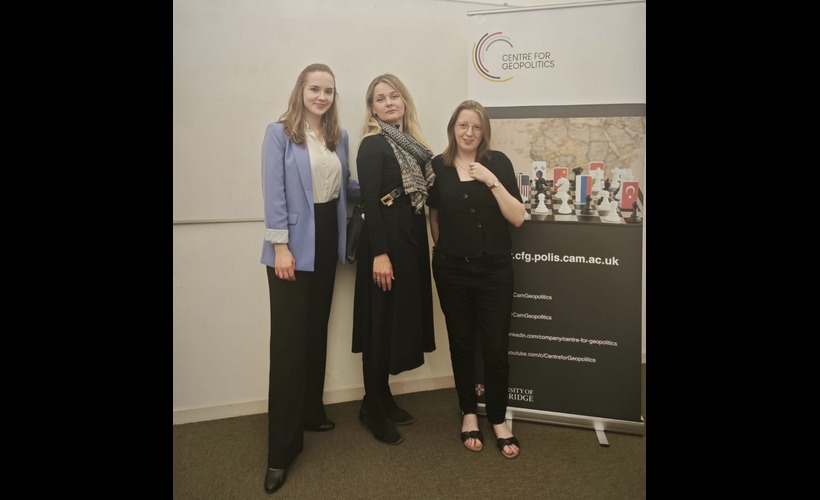By Elvira Tamus, Research Assistant
On 19 July 2023, the Centre for Geopolitics and the Study of Existential Risk jointly hosted a webinar on ‘Nuclear risk reduction in the Baltic Sea region’, chaired by Rt Hon Charles Clarke (former Home Secretary and Co-founder of the Baltic Geopolitics Programme at Cambridge). The panel had three speakers – Dr Marion Messmer (Senior Research Fellow, International Security Programme at Chatham House), Artis Pabriks (Minister of Foreign Affairs of Latvia, 2004-2007; Minister of Defence of Latvia, 2019-2022; and Director of The Northern European Policy Center), and Paul Ingram (Academic Programme Manager, Centre for the Study of Existential Risk and former Executive Director of the transatlantic British American Security Information Council, 2007-2019).
First, Dr Marion Messmer argued that the geography and geopolitics of the Baltic Sea region significantly changed in the past three decades and Russian expansionist activities have intensified against cyber, air, and maritime borders as well. Messmer reminded us that several Baltic states have put efforts into becoming resilient to the Russian threat; Sweden and Finland have a long history of military cooperation, and Estonia and Finland have become cyber experts. She emphasised that more agreements with Russia are necessary and the contracts should be updated to reflect modern capabilities, as well as collective and individual resilience being as high as possible to be able to respond to crisis with a clear head.
Second, Artis Pabriks highlighted that the Russian imperial claim is curtailed dramatically as Sweden and Finland join the NATO – it is significant from a security perspective since Russia cannot cut the Baltic countries away from the West anymore. Furthermore, Pabriks stated that the Baltic countries could be overwhelmed and invaded without serious guarantees from the West. States in the Baltic area need to remain alert even if they have become much more united, and political and psychological aggressiveness will stay in Russia for a long time.
Third, Paul Ingram introduced the three arenas of nuclear risk reduction (NRR), that is to say capabilities (military force posture), intention (military doctrine), and understanding (diplomacy, strategic relationships, transparency, reporting). He also explained the two NATO narratives regarding NRR – the first claims that strong nuclear deterrence contains Russia and provides security, while the second argues for achieving progress on nuclear arms control and disarmament to avoid catastrophe. Ingram stressed the need to confront Russia with unity in an appropriate form and the importance of stovepipe talks on NRR, arms control, and disarmament.
The three talks were followed by a vivid discussion on questions regarding the effect that a regime change in the Kremlin would have on Baltic geopolitics; the extent to which NATO countries and politicians can trust Russia and its leadership, the role China can play in nuclear risk reduction in the Baltic Sea region, the degree to which geopolitical developments in other parts of the world are related to the Baltic region, the expertise and experience Sweden and Finland provide for the NATO by joining the alliance, as well as the No First Use policy and dual use of nuclear weapons. The panellists agreed that continuing these conversations, specifically in the Baltic context, is highly important due to the region’s increasingly crucial role in global political and military issues.
This panel aimed to begin the process of gathering proposals in these fields and assessing them on the basis of their utility and realistic political, strategic, and diplomatic prospects. This is particularly pertinent for policy discussions in NATO at present. It is hoped to follow up this online panel with an in-person seminar in the autumn.







